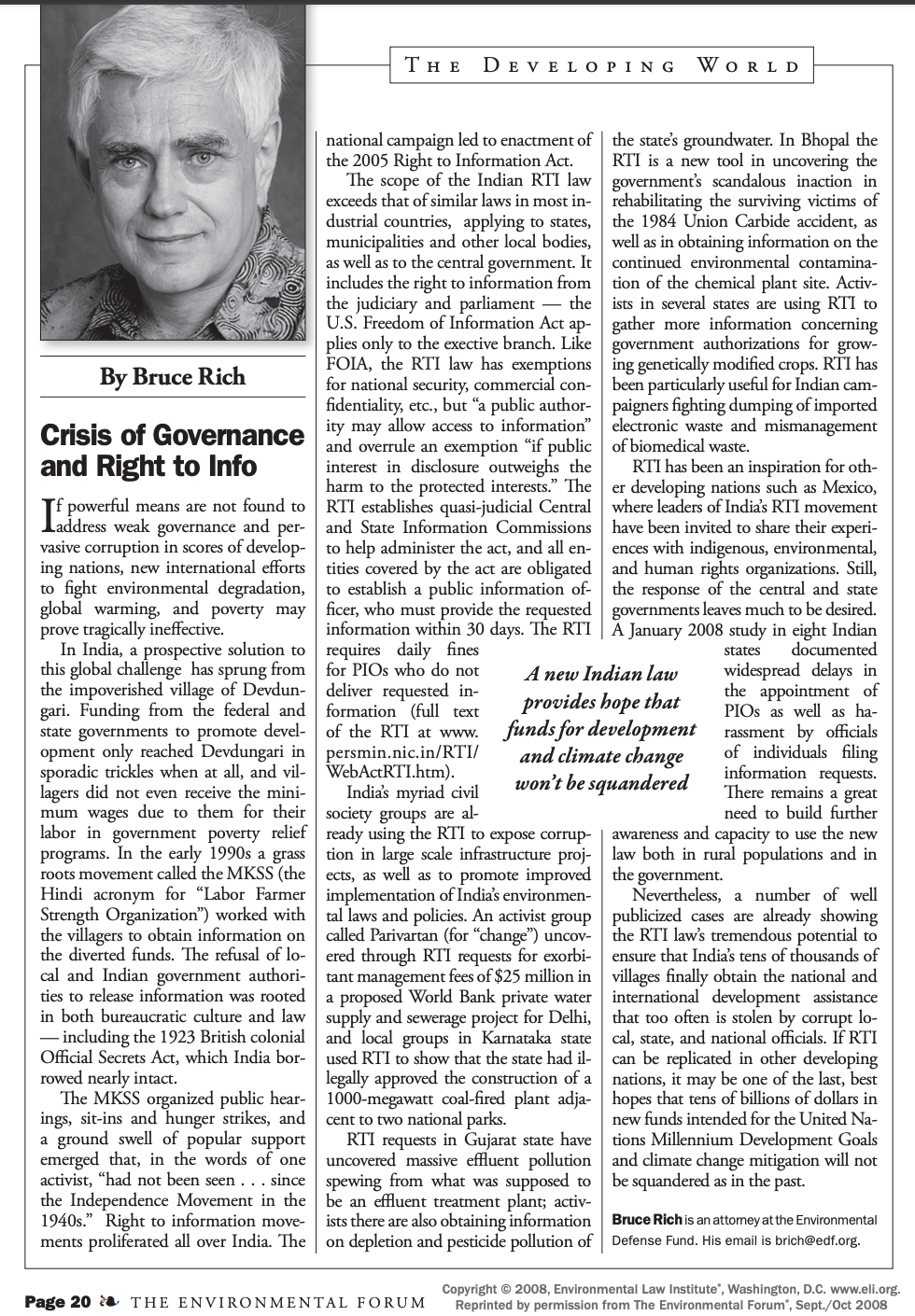- Bruce Rich
- Environmental Forum
- September-October 2008
- p. 20
A new Indian law provides hope that funds for development and climate change won’t be squandered....The scope of the Indian RTI (Right to Information) law exceeds that of similar laws in most industrial countries, applying to states, municipalities and other local bodies, as well as to the central government. It includes the right to information from the judiciary and parliament — the U.S. Freedom of Information Act applies only to the exective branch. Like FOIA, the RTI law has exemptions for national security, commercial confidentiality, etc., but “a public authority may allow access to information” and overrule an exemption “if public interest in disclosure outweighs the harm to the protected interests.” The RTI establishes quasi-judicial Central and State Information Commissions to help administer the act, and all entities covered by the act are obligated to establish a public information officer, who must provide the requested information within 30 days....India’s myriad civil society groups are already using the RTI to expose corruption in large scale infrastructure projects, as well as to promote improved implementation of India’s environmental laws and policies.



